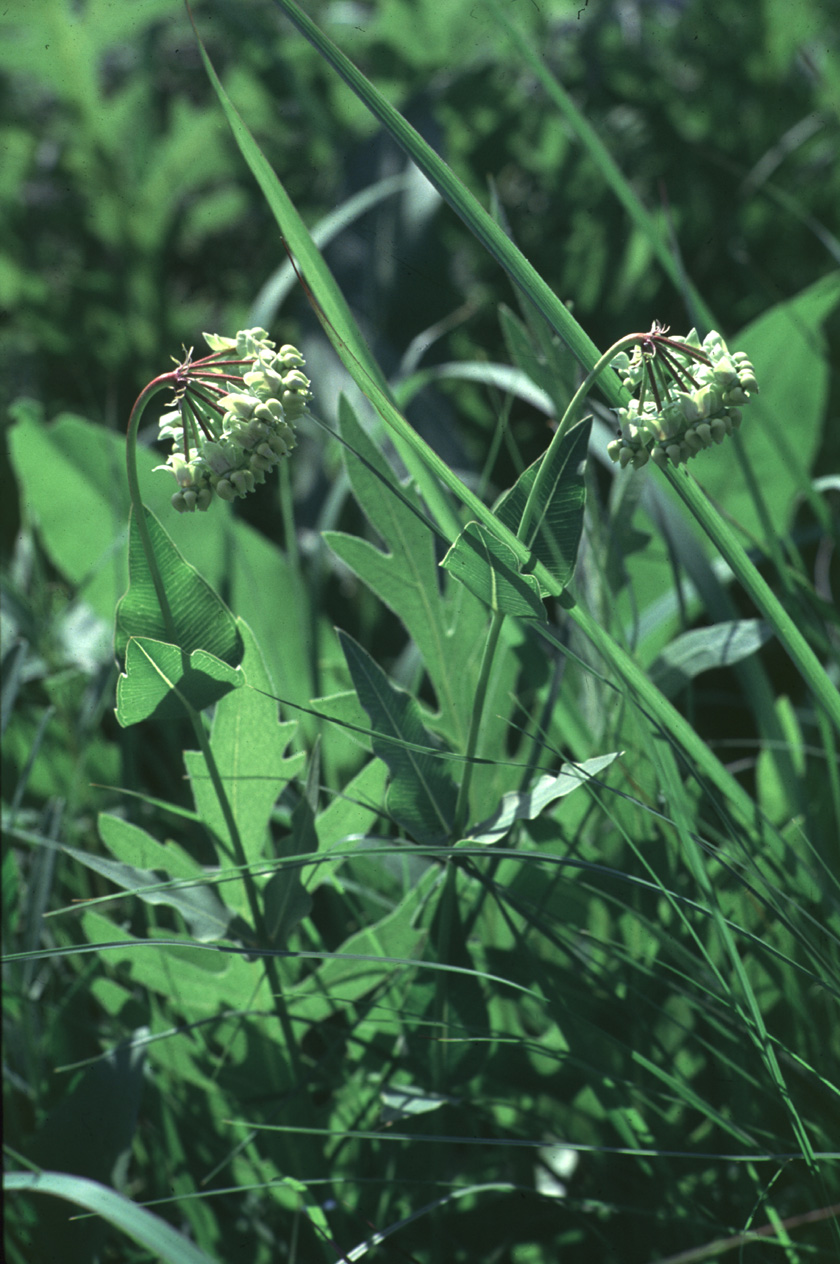National Collection Spotlight: Mead’s Milkweed

Mead’s Milkweed (Asclepias meadii) is a federally threatened species from the Midwestern tallgrass prairies and glades of Indiana, Wisconsin, Illinois, Missouri, and Kansas. This formerly widespread species has steeply declined due to the extensive destruction and fragmentation of its habitat across the Midwest.
With smooth blue-green leaves and a distinctive herringbone leaf-vein pattern, this species of milkweed differs from most others by producing an unbranched stem, crowned by a solitary cluster of flowers just above the topmost pair of leaves. The nodding inflorescence changes from green to ivory as they mature, with flowers that produce large amounts of nectar and are pollinated by small bees.
Today, all of the Mead’s Milkweed tallgrass prairie populations in Wisconsin, Illinois, and Indiana have been destroyed by agriculture, though following federal and state recovery planning, populations are being restored.
CPC Conservation Partners at The Morton Arboretum are conducting demographic and genetic research, and have designed a restoration that will meet federal recovery plan criteria by restoring genetically diverse populations in the eastern part of this species range. Most recently, the Missouri Botanical Garden collected seeds from populations in Missouri and Kansas, and now hold 160 accessions in its seed bank consisting of 9,424 seeds.
Learn more about this imperiled milkweed species and the conservation actions underway to preserve it on its CPC plant profile!